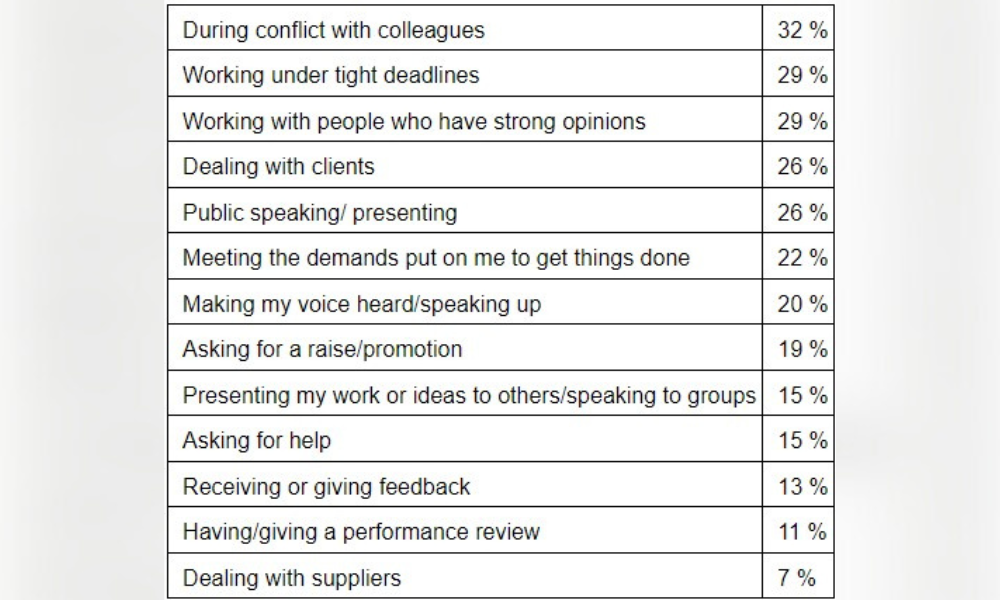
How can employers address negative emotions at work?

Three-quarters of Canadian employees say they need to maintain emotional control at work during stressful times.
More than a third (37%) report experiencing this weekly or more.
What’s causing the upheaval? Professional conflict, workload and deadlines and dealing with colleagues with strong opinions are the most common challenges to workers maintaining composure, finds the survey of 1,389 Canadians in August.
Workers say their facial expressions are the most challenging “tell” to control in the workplace (36%), with the tone of voice (35%) and lack of confidence (26%), closely following, finds online poker platform PokerStars.

Source: PokerStars
Controlling one’s emotions in the workplace is important, says Arlie Shaban, Ontario's representative on PokerStars Team Pro.
“Keeping emotions in check helps you to stick to a rational strategy. My advice would be to recognise what specific situations or interactions trigger strong emotions; understanding these triggers can help you prepare and respond more calmly."
Controlling emotions is a necessity, according to Angela Champ, author and senior leadership coach.
"In today's fast-paced professional environment, the ability to maintain composure under pressure is not just beneficial – it's essential. Developing this skill requires a personalized set of tools, from mindful pauses to perspective-taking, that you can apply in any challenging workplace scenario.
“By learning to control your tells, you'll not only navigate tough situations more effectively but also enhance your overall influence and impact within the organization."
The cost of living is stressing out many Canadians, and this is causing their happiness level to drop, according to a previous report from ADP.
Employers have a role to play in minimizing the negative emotions that workers experience at work, according to corporate wellness firm WorkThera.
“Negative emotions in the workplace can manifest in various forms, from individual dissatisfaction to team conflicts. In management psychology, the concept of emotional contagion highlights how emotions can spread within a group, affecting overall morale and productivity,” they say via LinkedIn.
“Recognizing these negative emotions as signals of underlying issues is the first step in addressing them. Employers and managers must be attuned to the emotional climate of the workplace to identify and understand the root causes of negative emotions.”
To address the problem, they suggest that employers do the following: